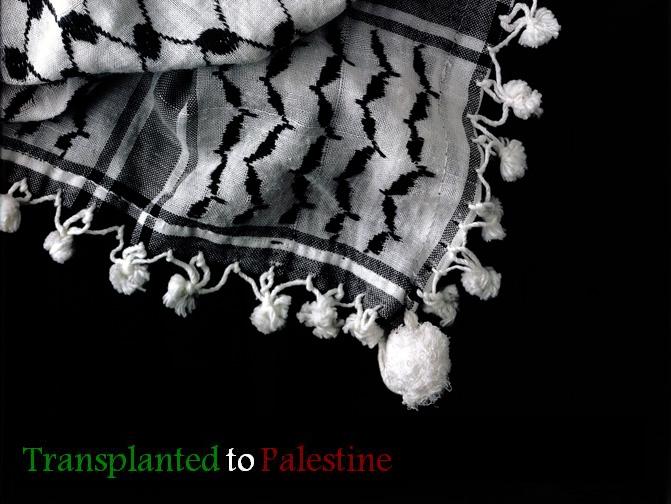Neve Gordon writes in the LA Times today about boycotting Israel as an Israeli Jew. His article was the final push of inspiration I needed to finally sit down and write this post. I am a few days later than I promised, but at least it's done.
As I mentioned a few days ago, I recently spent 10 days taking a group of 12 Americans around the West Bank, Jerusalem, and "Israel"/Palestine '48. This was the third such trip I have led. I originally agreed to do it because last year I was not working, was in dire need for something to do and a little income. However, during the first trip and increasing since then I have come to embrace this as my brand of activism. There are two things I very much believe about the situation here: first, that any otherwise uninformed and unafflicted American who is presented with raw facts about what is happening here will undoubtedly agree that Palestinians have certain rights that are consistantly and systematically being denied. Once they know this, many Americans will use conversation to convince others of this. I believe that the average American is a decent human being who, once they have right knowledge, will want a just solution here. Secondly, I see the American government as the third party in this conflict. They are by no means an impartial unbiased negotiator for peace. They are perpetrators and invested partners of the Israeli regime. That said, I think much of the power to end the occupation and bring about just peace lies in the hands of the American people's responsibility to hold their government accountable. This can happen through tax-refusal, sanctioning, aid reform, and voting but also through grass-roots efforts such as boycotting and divesting. This is why I bother to do these trips. The Global Exchange trip is not perfect and I actually believe there are better trip out there, but for now this is the opportunity I have and one that does a damn decent job at achieving what I have in mind right now.
So, what do we do? First, participants are given a pretty substantial amount of reading material to prepare them for what is happening here. This is historical, contemporary, and political. Then, participants come and see. We spend 10 days meeting with organizations and individuals who are working for a just solution. On the Palestinian side, this generally includes a day in Dheisha refugee camp, Addameer, Hani and Muneera, the Right to Education and many others. On the Israeli side, this includes ICAHD, Zochrot , B'tselem, Who Profits and others. We also meet with several "joint" projects with both Israelis and Palestinians working with them such as Combatants for Peace and the Alternative Information Center. We visit as many people and places as we possibly can in ten days. On this past trip, we got to Jerusalem (including the Ma'ale Adumim settlement), Ramallah, Hebron (including the Efrat settlement and one of its outposts), Bethlehem/Beit Sahour, Jenin, Jayyous/Qalqilia, Yaffa/Tel Aviv, Rahat/bedouin villages in the Negev, and drove through/stropped briefly in Nablus and Jericho.
Generally speaking, at the end of the trip the participants are feeling tired, overwhelmed, and eternally greatful they took the time, money, and energy to come. One of the complaints I have of the trip thusfar is that its participants tend to not do as much when they go home as I'd like. I think this is a problem with all such trips to anywhere in the world. However, the most recent group is giving me hope. Several of them seem quite enthusiastic and energetic to get to work.
Palestinians active in the boycott campaign tell me that the boycott in some ways is secondary to the primary goal of the education campaign. The more people who come here and see it first-hand means there are more people in American who know someone who came here and saw it first-hand. As the people who came here make presentations and have conversations, the more it spreads. Israel has, since its creation, consistently spent billions of dollars and uncountable man hours to develop its PR and media machines. Palestine is now developing this in a very grass-roots way and it is starting to have an effect. I have watched general public opinion among Americans shift quite substantially (in a good way) just since I first got actively involved in this issue maybe five or six years ago.
The third thing I believe about the situation here is that one possible way the occupation will end is that America will say it has to end. I am no Obama-is-going-fix-the-world believer, but I do think he is in a unique position of having the trust and interest of a lot of people on both sides here. I think if we, as Palestine activists, play our cards right, he could be an ally to creating a just solution here. However, I think grass-roots efforts, supported by trips like these, will have the most power effect long-term.
As I mentioned a few days ago, I recently spent 10 days taking a group of 12 Americans around the West Bank, Jerusalem, and "Israel"/Palestine '48. This was the third such trip I have led. I originally agreed to do it because last year I was not working, was in dire need for something to do and a little income. However, during the first trip and increasing since then I have come to embrace this as my brand of activism. There are two things I very much believe about the situation here: first, that any otherwise uninformed and unafflicted American who is presented with raw facts about what is happening here will undoubtedly agree that Palestinians have certain rights that are consistantly and systematically being denied. Once they know this, many Americans will use conversation to convince others of this. I believe that the average American is a decent human being who, once they have right knowledge, will want a just solution here. Secondly, I see the American government as the third party in this conflict. They are by no means an impartial unbiased negotiator for peace. They are perpetrators and invested partners of the Israeli regime. That said, I think much of the power to end the occupation and bring about just peace lies in the hands of the American people's responsibility to hold their government accountable. This can happen through tax-refusal, sanctioning, aid reform, and voting but also through grass-roots efforts such as boycotting and divesting. This is why I bother to do these trips. The Global Exchange trip is not perfect and I actually believe there are better trip out there, but for now this is the opportunity I have and one that does a damn decent job at achieving what I have in mind right now.
So, what do we do? First, participants are given a pretty substantial amount of reading material to prepare them for what is happening here. This is historical, contemporary, and political. Then, participants come and see. We spend 10 days meeting with organizations and individuals who are working for a just solution. On the Palestinian side, this generally includes a day in Dheisha refugee camp, Addameer, Hani and Muneera, the Right to Education and many others. On the Israeli side, this includes ICAHD, Zochrot , B'tselem, Who Profits and others. We also meet with several "joint" projects with both Israelis and Palestinians working with them such as Combatants for Peace and the Alternative Information Center. We visit as many people and places as we possibly can in ten days. On this past trip, we got to Jerusalem (including the Ma'ale Adumim settlement), Ramallah, Hebron (including the Efrat settlement and one of its outposts), Bethlehem/Beit Sahour, Jenin, Jayyous/Qalqilia, Yaffa/Tel Aviv, Rahat/bedouin villages in the Negev, and drove through/stropped briefly in Nablus and Jericho.
Generally speaking, at the end of the trip the participants are feeling tired, overwhelmed, and eternally greatful they took the time, money, and energy to come. One of the complaints I have of the trip thusfar is that its participants tend to not do as much when they go home as I'd like. I think this is a problem with all such trips to anywhere in the world. However, the most recent group is giving me hope. Several of them seem quite enthusiastic and energetic to get to work.
Palestinians active in the boycott campaign tell me that the boycott in some ways is secondary to the primary goal of the education campaign. The more people who come here and see it first-hand means there are more people in American who know someone who came here and saw it first-hand. As the people who came here make presentations and have conversations, the more it spreads. Israel has, since its creation, consistently spent billions of dollars and uncountable man hours to develop its PR and media machines. Palestine is now developing this in a very grass-roots way and it is starting to have an effect. I have watched general public opinion among Americans shift quite substantially (in a good way) just since I first got actively involved in this issue maybe five or six years ago.
The third thing I believe about the situation here is that one possible way the occupation will end is that America will say it has to end. I am no Obama-is-going-fix-the-world believer, but I do think he is in a unique position of having the trust and interest of a lot of people on both sides here. I think if we, as Palestine activists, play our cards right, he could be an ally to creating a just solution here. However, I think grass-roots efforts, supported by trips like these, will have the most power effect long-term.

